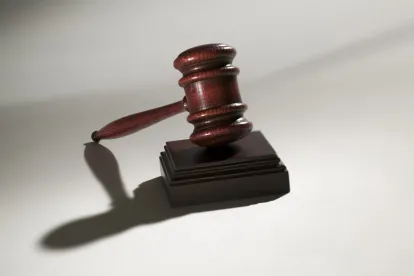The Seventh Circuit’s recent decision in Indianapolis Airport Authority v. Travelers Property Casualty Co. of America, No. 16-2675 (7th Cir. Feb. 17, 2017), written by Judge David Hamilton, is one for civil litigators to take note of. It appears to be the first time the Seventh Circuit has used Federal Rule of Civil Procedure 26(a)(2)(C). That subsection, which was part of the Rule’s 2010 amendments, governs the disclosures required for “hybrid witnesses”—that is, witnesses not retained or specifically employed to provide expert testimony, but who have personal knowledge and offer both fact- and expert-opinion testimony. (The court has mentioned Rule 26(a)(2)(C) previously, but never has applied it.)
Rule 26(a)(2) governs the disclosure of expert witnesses, and subsection (a)(2)(B) requires a detailed written report to accompany a disclosure when the witness was “retained or specifically employed” to provide expert testimony. Rule 26 had been silent for hybrid witnesses, however, such that, before the 2010 amendments, they existed in a sort of twilight zone: They were free to offer fact testimony, but they could also offer expert opinions without preparing a detailed report because they did not meet the technical definition of an expert under 26(a)(2)(B).
Rule 26’s drafters sought to address this in 2010 by adding subpart (C), which requires a summary disclosure of the opinions and supporting facts expected to be offered by hybrid witnesses. The advisory committee’s note explains that the addition would “resolve[ the] tension that ha[d] sometimes prompted courts to require reports under Rule 26(a)(2)(B) even from witnesses exempted from the report requirement.”
The Seventh Circuit addressed subsection (a)(2)(C) head-on in Indianapolis Airport Authority and used it to reverse the district court, which had excluded testimony from two hybrid witnesses who had not prepared detailed written reports. The Seventh Circuit unequivocally held that hybrid witnesses need not submit a “full-fledged” report. The Court was satisfied with the summary disclosures and believed that there had been “ample opportunity” to depose the witnesses.
It is important to keep certain limits in mind. Hybrid witnesses, as the court explained, “do not have carte blanche to testify,” but “must testify from the[ir] personal knowledge.” So long as they stick to that personal knowledge, however, they may contradict opposing experts “provided that their disagreement is factual in nature.” The Seventh Circuit directed district courts to “police this distinction” and thus prevent hybrid witnesses from crossing the line into the territory of retained experts.




 />i
/>i
